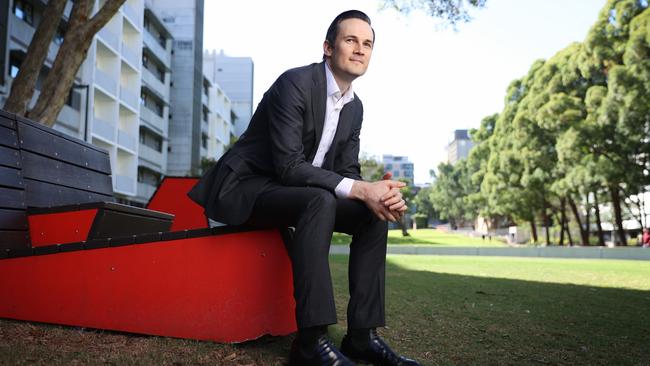Why Australia needs government-backed start-up funds like Breakthrough Victoria
Click-bait criticism of Breakthrough Victoria is unwarranted and shows why Australian economic development policy has a tortured history.

The recent criticisms directed at Breakthrough Victoria are both unwarranted and serve as a fresh example of why Australian economic development policy has such a sad and tortured history.
Instead of premature critique, it is critical to the future of Australia that we view the design and implementation of policies like Breakthrough Victoria with a constructive and long-term lens. Platforming clumsy and uninformed critics for engagement has no place in the debate required to create Australia’s future prosperity.
Breakthrough Victoria is an example of an effective government economic development policy that has accelerated the development and adoption of new Australian innovation, as well as created a new high-water mark of collaboration with private capital for research commercialisation within many Victorian universities. It has fostered the development of new industries that otherwise would not exist in Australia.
This in turn develops a skilled workforce that creates a pipeline of talent for Australia’s future innovation. It hasn’t crowded out private capital; it’s done the opposite, having facilitated capital flows into companies which would otherwise not exist in Australia
The true test of economic development policy is time. You plant a seed and water it for 10 years, and then assess how well it has grown or not. Unfortunately, this also makes it an easy target for self-interested critics.
Sadly, economic development policy does not win elections and so there are few incentives to commit to these policies for the required time horizon.
We’ve seen a version of this story before, with how easily a few shrill voices created a narrative that ultimately destroyed the effectiveness of the National Innovation and Science Agenda (NISA).
Despite premature criticisms and challenges in implementation, NISA catalysed a cultural and entrepreneurial shift. Launched in 2015 with a budget of $1.1bn over four years aiming to stimulate innovation and entrepreneurship, NISA was consistently the target of criticism.

NISA was effective in improving access to capital for emerging businesses with a record $1.25bn invested in start-ups in 2018 alone, nearly 10 times the amount invested in 2013. Part of this was the creation of CSIRO’s ON accelerator program and the venture capital fund Main Sequence, which have now collectively facilitated over $500m of additional private capital that’s now supporting Australian research commercialisation.
Good policies like NISA are killed by uninformed journalism and political opportunism. NISA was an excellent policy, yet negative press in its early years undermined (and ultimately killed) it before it could deliver much value.
Australia’s early-stage companies have been the victim of a revolving door of economic development policies. The key impact of this revolving door is the complete lack of policy consistency, which was outlined by the Committee for Economic Development of Australia’s (CEDA) report on Harnessing science and technology to drive Australian innovation and growth. This report is a clear outline of how Australia has suffered from the lack of a nonpartisan, long-term innovation policy agenda.
As the CEDA report points out: “The average time between publishing academic research and its effects on productivity growth in the relevant industry is roughly 20 years.
“In the past 20 years, Australia has had eight elections, seven prime ministers and three changes of government. There have been nine ministers responsible for innovation in the past nine years … the lack of clarity and prioritisation of these issues on the national agenda has contributed to a lack of captaincy.”
While this example points to the Commonwealth, the same dynamic exists at the state government level. Inconsistent policy creates uncertainty, and uncertainty is poison for start-ups.
In contrast to the Australian approach, the United States’ development policy like The Small Business Innovation Research (SBIR) program has been largely unchanged since its introduction in 1982, and seven presidential administrations. This has given US start-ups the confidence to rely on it as a resource.
This gives our start-ups a significant disadvantage compared with other countries and ultimately impoverishes the Australian economy.
Much of the criticism levelled at Breakthrough Victoria can be easily dismissed by reading its published annual reports but success stories aren’t the ones that get clicks. As such, over the last week, the media has painted Breakthrough Victoria as a foolish gamble of taxpayers’ money. Some would have you believe that this venture capital thing is so hard – too hard for government.
This is nonsense. Regulating our medicines is difficult. Choosing which scientific research to fund is difficult. Defending our national security is difficult. In all these arenas the government sector has an important role.
Government financial investment together with private capital can co-shape the focus we need on value chains where Australia can build a resilient economy. We have decades of history showing that private capital alone will see our economy atrophy and decay.
That Breakthrough Victoria has already assessed over $3bn of investment opportunities in less than two years shows how starved Australia’s entrepreneurs are for capital. Breakthrough Victoria’s investments into companies like Samsara Eco are not merely financial transactions but pivotal in constructing an environment where innovation and entrepreneurship can thrive.
Without Breakthrough Victoria, the amazing global potential of Samsara Eco could not be realised in Australia. Breakthrough Victoria has already created an impressive track record of catalysing private capital to back companies which would struggle (or never be possible) in Australia. Even when some of these companies fail, the spillover effect of job creation and skill development has an ongoing positive multiplier effect on the economy.
While the aspiration for transparency and accountability in public spending is always important, it is crucial to recognise that the results from good economic development policy unfold over decades. If we sacrifice good policy at the altar of perfection, we are undermining our future economic prosperity.
In our work at the University of New South Wales Founders Program we combine such government support with long-term philanthropic funding for this very reason. Nurturing the next generation of Australian companies requires generational vision and patience.
David Burt is director of entrepreneurship at UNSW Founders



To join the conversation, please log in. Don't have an account? Register
Join the conversation, you are commenting as Logout